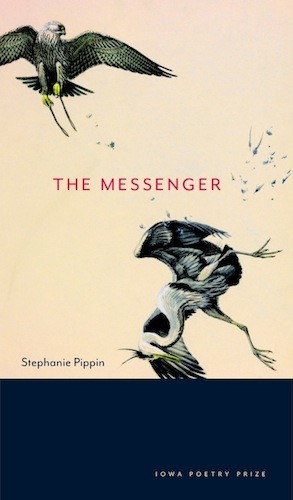
(University Of Iowa Press, 2016)
REVIEW BY TIMOTHY DeLIZZA
__
Allegra Hyde’s debut short story collection Of This New World is one of those rare collections that, despite not being interconnected, manages to cumulatively add up to far more than the sum of its parts.
Each piece is looking at humankind’s centuries long quest for the creation of a utopian communities, large and small, and a compassionate look at how our inherently flawed nature prevents us from sticking the landing in any of these attempts.
You don’t think of it often, but this utopian urge is really an ever-present trait that is under-discussed as an innate urge, and which is better displayed through disparate stories: from creations myths to the shakers to now to colonies on Mars.
Typically in Hyde’s collection– as in life – a male egotist visionary with rigid views, a belief inspiring belief that if his way is followed it will work this time. Others then get caught up in this idea and develop collective blindspots. My favorite in the collection, Shark Fishing, follows an eco-society on an island in The Bahamas founded by one such visionary ex-military man turned idealist. The resulting attempt exactly captures both the earnestness and cynicism that goes into study-abroad “service trips.”
In fact, as I read, a long forgotten memory resurfaced from high school — I couldn’t have been more than fifteen, maybe younger — but I set about trying to write a manifesto for the creation of a Utopian society. I wish I could find it now, but I recall it was full of incredibly poorly thought out and scattered ideas.?? To name a few: there would be no central government at all, just local (town level) organizing boards and every person would be required to have a gun so that if a foreign country tried to invade they’d need to go door to door — there was no head to be cut off but the protection would be purely defensive because there were no standing armies. Also, most of childhood would be spent learning art or classes purely of students choosing, sometimes taught by other children just a few years old. Like I said, these were terrible ideas. I named the whole thing after a woman I barely knew but had a crush on. This woman, mind you, wasn’t even particularly political, and would have most certainly and wisely disagreed with all its contents. I never showed the manifesto to anyone and abandoned the project when I couldn’t figure out who, in my new system, would take on the job of sanitation worker (my epitome of a lousy job at the time).
The writing in the collection also provides a masterclass in realized moments: A haggard Vet in a Santa hat wanting to get out of a conversation, using the pretext of hearing a small ruckus behind him to leave a conversation and never come back. A former friend is met, surrounded by a row of her ex-boyfriends “each an unknown upgrade of the next” who she has managed to stay friends with and who that hang around for the rest of the story like a Greek chorus as the plot explores the tight, near ideal bond of teenage female friendship and the pains of the bond’s dissolution at adulthood.
All these touches happen without losing sight of the main theme: that so fixed is the idea of utopia in our bones that we keep searching in poorly considered ways, with often well-intended (at least to start) motives and that those brief communities are almost always doomed. This unifying idea for a collection really interconnects and reinforces itself much more deeply than collections with mere reoccurring characters or localities.
—
Timothy DeLizza lives in Baltimore, MD. During daytime hours, he’s an energy attorney for the government. His novella ‘Jerry (from Accounting)’ was published by Amazon.com‘s Day One imprint. His work can be found here: http://www.timothy-deliz
![[PANK]](http://pankmagazine.com/wp-content/themes/pank/assets/images/pank-logo-large.png)

